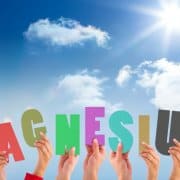Study: Magnesium and Vitamin D Improve ADHD
Reportedly, giving vitamin D and magnesium to children who met the study criteria improved many behavioral symptoms of ADHD. The summary of the research article “The effect of vitamin D and magnesium supplementation on the mental health status of attention-deficit hyperactive children: a randomized controlled trial” is included below. Additional research with a larger number of subjects is recommended, but initial results are encouraging.
From the study report: Attention-Deficit / Hyperactivity Disorder (ADHD) is a neurodevelopmental disorder characterized by varying severity in attention deficit and hyperactivity. Studies have shown deficiencies in the blood level of magnesium and vitamin D in people with ADHD. The aim of this study was to determine the effect of vitamin D and magnesium supplementation on mental health in children with ADHD.
Methods
We conducted a randomized, double-blind, placebo-controlled clinical trial of 66 children with ADHD. Participants were randomly allocated to receive both vitamin D (50,000 IU/week) plus magnesium (6 mg/kg/day) supplements
or placebos for 8 weeks. Strengths A “strengths and difficulties” questionnaire was used to evaluate children’s mental health at baseline and at the end of the study.
Children aged between 6 and 12 years old, with a serum level of 25-hydroxyvitamin D3 less than 30 ng/dL, a diagnosis of ADHD based on the presence of at least 6 out of 9 cases of inattention and also at least 6 out of 9 cases of hyperactivity based on DSM IV (Diagnostic and Statistical Manual of Mental Disorders, fourth edition), and serum magnesium levels less than 2.3 mg/dL, were included in the study. Participants were excluded if they were taking any multivitamin/mineral before initiating or during the study and suffering from any chronic medical or other psychiatric disorders.
Results
After eight weeks of intervention, the serum levels of 25-hydroxy-vitamin D3 and magnesium increased significantly in the intervention group compared with the control group.
Children receiving vitamin D plus magnesium showed a significant reduction in emotional problems, conduct problems, peer problems, social skills score, total difficulties, externalizing score, and internalizing score compared with children treated with the placebo.
Conclusion
Vitamin D (50,000 IU/week) and magnesium (6 mg/kg/day) co-supplementation for a duration of 8-weeks could improve the behavioral function and mental health of children with ADHD. However, further well-designed studies with a larger sample size are needed. Read the full article








